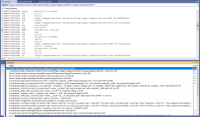-
Type:
Bug
-
Resolution: Fixed
-
Priority:
Major - P3
-
Affects Version/s: 8.0.4
-
Component/s: None
-
Environment:OS: Windows Server 2025, 2022, 2019
MongoDB Version: 8.0.4
CPU: Intel Xeon E5-1650 v2 (Ivy Bridge), Intel Xeon E5-2665 (Sandy Bridge)
-
Networking & Observability
-
Fully Compatible
-
ALL
-
-
N&O 2025-04-28, N&O 2025-05-12, N&O 2025-05-26, N&O 2025-06-09, N&O 2025-06-23, N&O 2025-11-10
-
(copied to CRM)
-
None
-
None
-
None
-
None
-
None
-
None
-
None
Reproducible: Yes, consistently
Description:
MongoDB 8.0.4 is able to start once and works fine when initializing a new database on a system running an Intel Xeon E5-1650 v2 (which lacks AVX2 and FMA3). However, after shutting down, MongoDB can no longer be started again — neither manually via CLI nor via our Node.js application (which uses child_process.spawn to start MongoDB as part of a data service).
At this point, MongoDB crashes on every startup with Illegal Instruction (0xC000001D) and can only be recovered by deleting the data directory and starting fresh, losing all previously initialized data.
This behavior is:
- Not present in MongoDB versions 5.x, 6.x, or 7.x (all work fine on the same hardware).
- Not reproducible on machines with newer CPUs supporting AVX2/FMA3 (e.g., Intel i7-4870HQ and i7-12850HX).
Clarification Requested:
We are not sure what to expect in this scenario, and we would really like to work with the MongoDB team to find out the root cause.
- If MongoDB v8 requires AVX2/FMA3 for proper operation, we kindly request that this be clearly documented in the hardware prerequisites.
- If MongoDB is not supposed to require these instruction sets, we would appreciate help in understanding what is triggering this crash.
- If there's something our application is doing incorrectly during MongoDB startup or shutdown, we would like to adjust our integration accordingly.
- Ideally, MongoDB should either:
-
- Fail gracefully with a descriptive error message, or
-
- Avoid triggering undefined behavior when unsupported CPU instructions are not available.
Additional Notes:
- The crash only happens after the initial DB setup and shutdown — never during the first run.
- This suggests the issue may be related to data state, memory management, or instruction usage introduced after setup, not just startup binary incompatibility.
- related to
-
SERVER-64574 Upgrade MozJS/Spidermonkey to the latest ESR
-
- Closed
-
